A lot of tech at CES feels like we’ve been here before. Another smart speaker? An even bigger TV? Wait, aren’t there already enough drones?! In light of that, we’re highlighting brands from 2023 CES striving to make the stuff you already own talk to each other more seamlessly, as well as cherry picking some new items that work within the life you lead, rather than further complicate and frustrate. (After all, CES is all about cool new innovations.) Sounds like the way tech was supposed to work in the first place, right?
Major Tech Announcements at 2023 CES You Should Care About
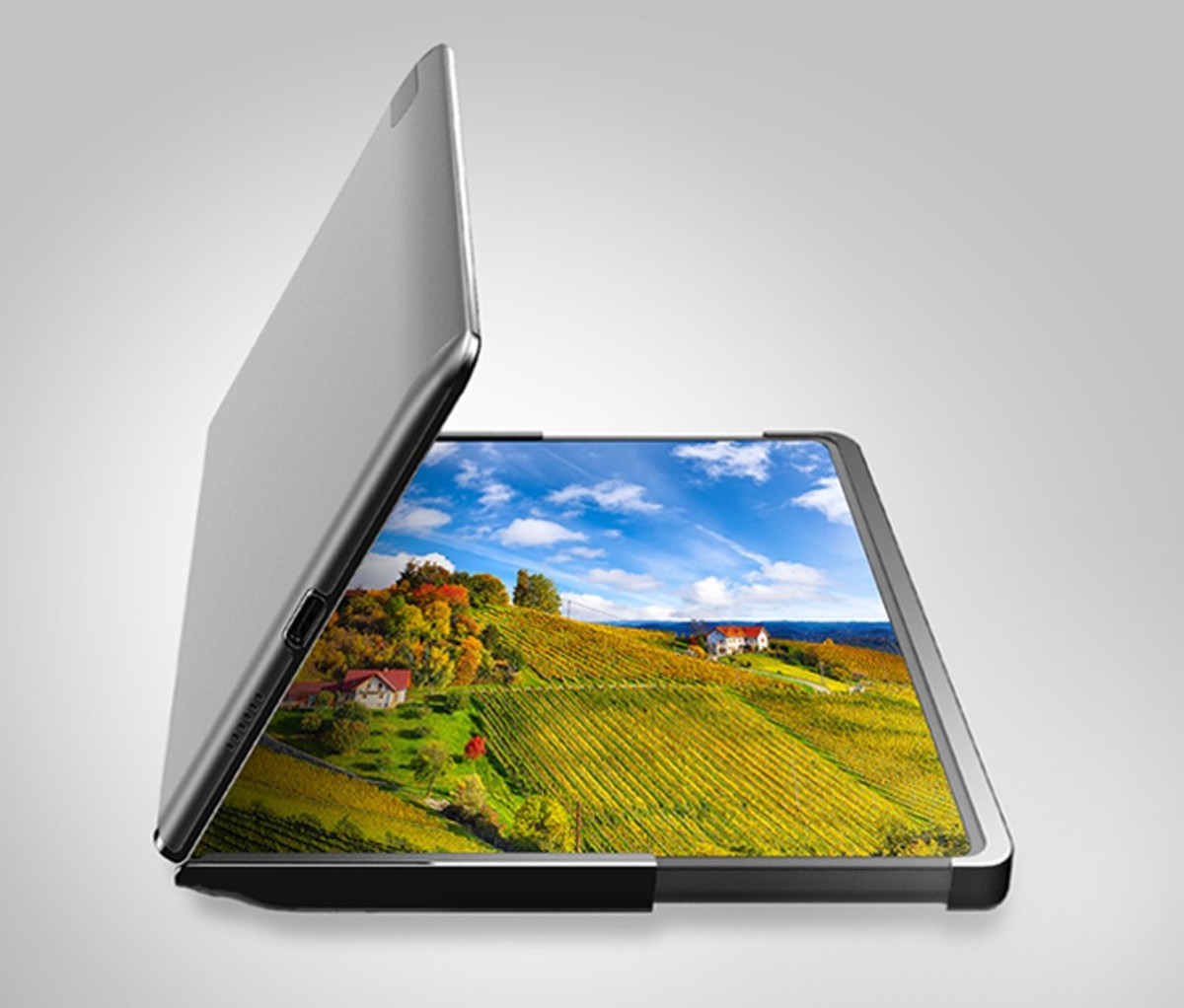
Samsung Bendable Displays Get Even Bendier
Some companies are seemingly ubiquitous at CES—Sharp, Panasonic, Google, Samsung—in large part because these companies’ wares operate behind the scenes in so many other products. Samsung, for instance, is baked into TVs, cars, and all over home and mobile. The brand’s folding phones, while already on sale, are about to get even more interesting. At 2023 CES, Samsung showed off two Flex Hybrid prototype screens.
One clamshell device is clearly what would work as a phone. Unfold it to the left to expand the screen from phone format (about 5×5 inches) to a 10.5-inch display in aspect ratio of 4:3; unfurl the right side and you now have a 12.4-inch screen in 16:10 ratio.
A tablet-like version takes the concept even farther, where a very portable 13-inch screen could expand to 17.3 inches. Both applications make a lot of sense. We all crave portable devices on the go, but sit on an airplane for a few hours and you’ll no doubt want the large-screen experience for gaming and watching movies.
Price and availability TBD.
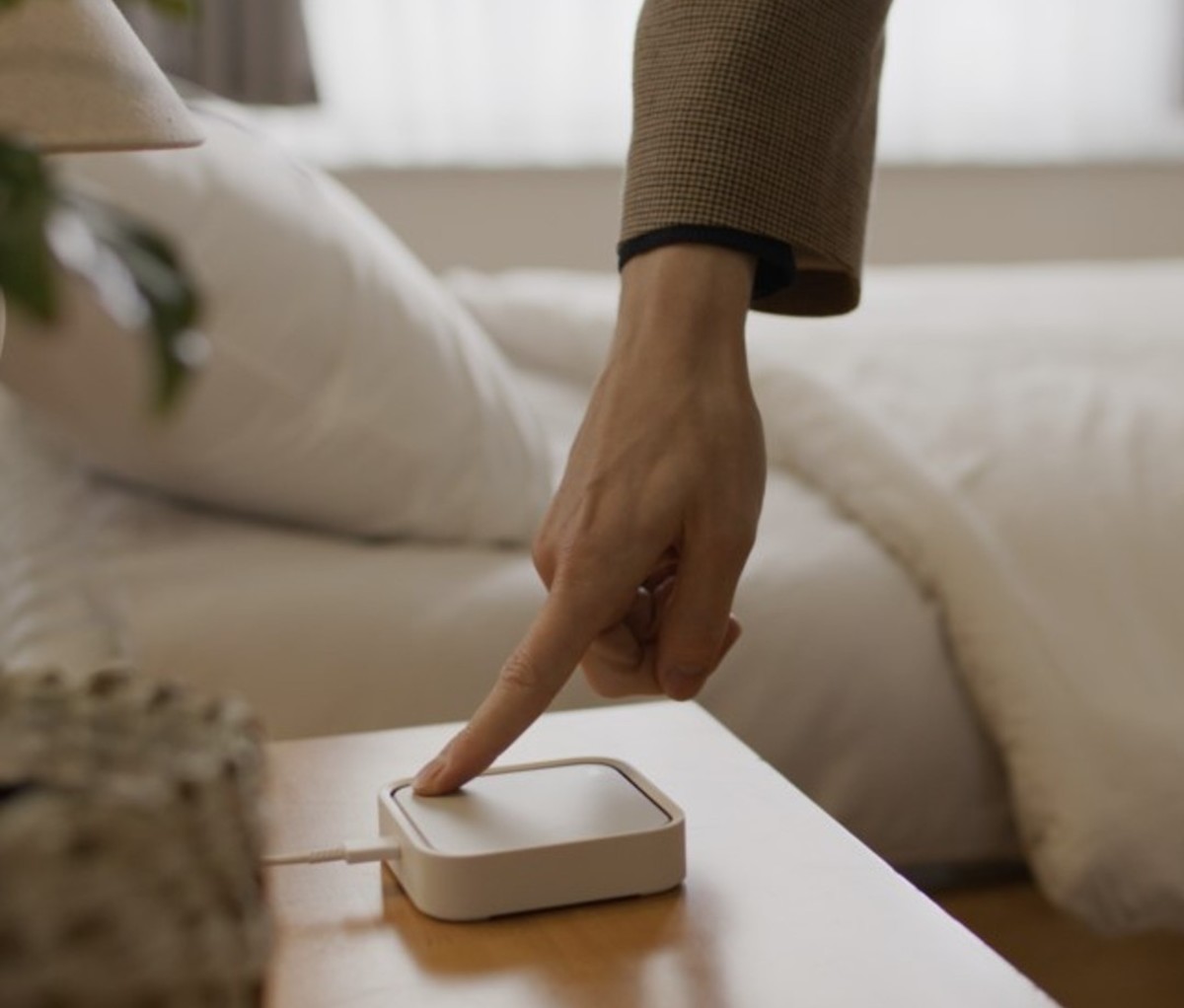
A Smart Hub to Rule Them All
Samsung is also one of several companies debuting a home hub that works with the new multi-brand Matter standard. A what, what? If you’ve purchased a smart thermostat, doorbell, camera, etc., you know the headache of Apple/Amazon/Google/Samsung, etc. all seeming to need their own specific app or connectivity to work. Just getting the widget to network on your WiFi can be a harebrained endeavor.
Matter solves that issue, by ensuring most smart devices can now talk to each other across brands. Samsung says its new Matter hub, which also acts as a wireless charging station, can communicate with anything from TVs to speakers, outlets to smart bulbs. Samsung says this will pair across its SmartThings mobile app without having to individually control each device—a godsend for Apple and Android interoperability.
Finally, we’ll have harmony and you can just buy a smart device without hitting roadblocks when you power them up.
$60; available in February.
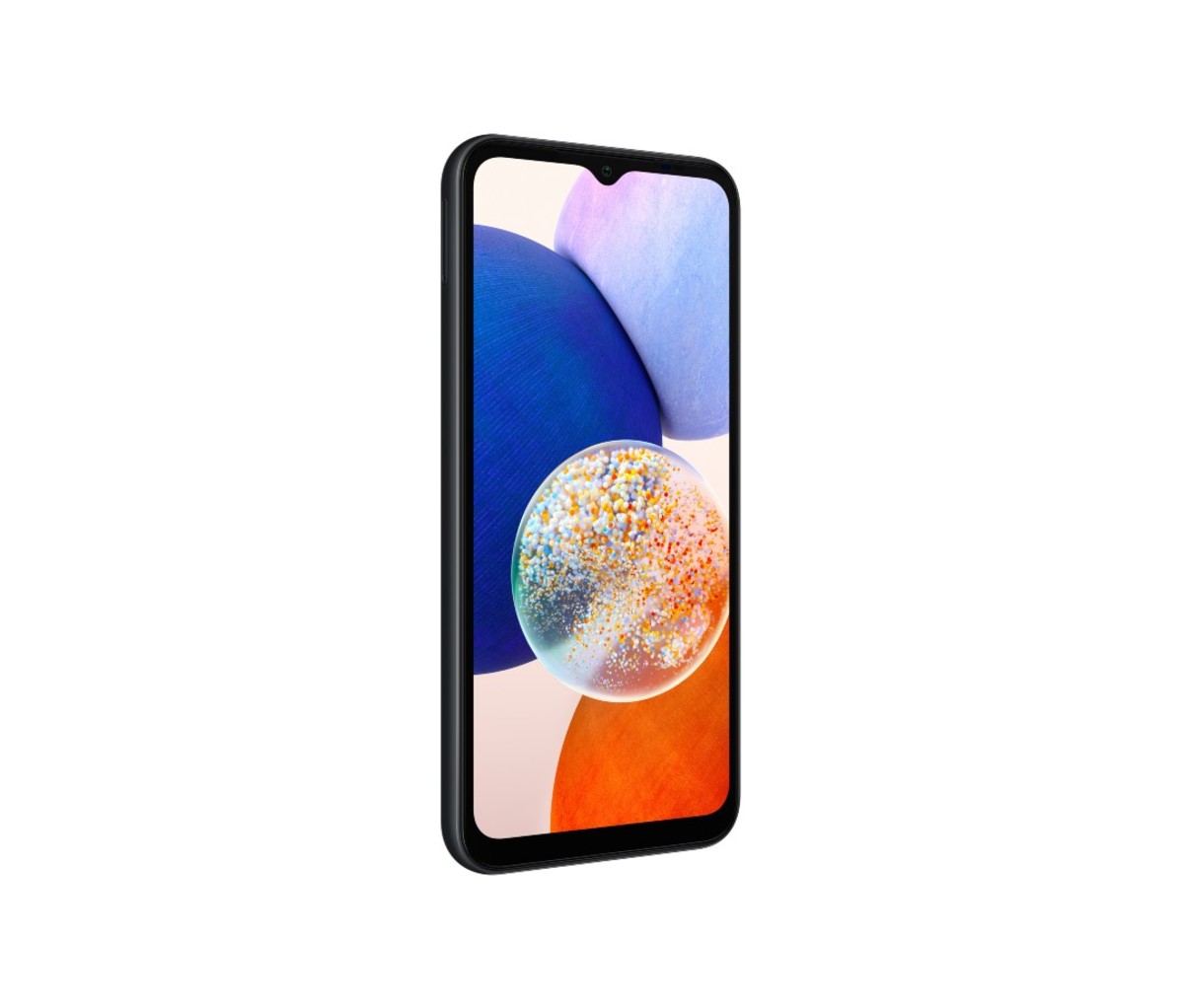
An Affordable Galaxy Phone With a Strong Selfie Game
Samsung is also showing off a new $199 Galaxy A14 5G phone that, sure, is very inexpensive, but also breaks some cost barriers on camera quality, battery life, and display clarity. Unlike the cheapest iPhone (an SE, for $429), the Galaxy A14 5G has three physical cameras rather than one. While onboard data storage is limited to 64GB, it’s expandable to up to 1TB using an inexpensive micro SD card. It’s packing a 6.6-inch screen with 1080p (HD) resolution; a 50-megapixel main camera and 13-megapixel front camera, plus a rear array boasting zoom and wide angle. Samsung also bakes in Google Meet, the Samsung Health app, to track body composition, sleep patterns, and exercise regimen.
Available Jan. 13, $199; about.att.com.
Learn More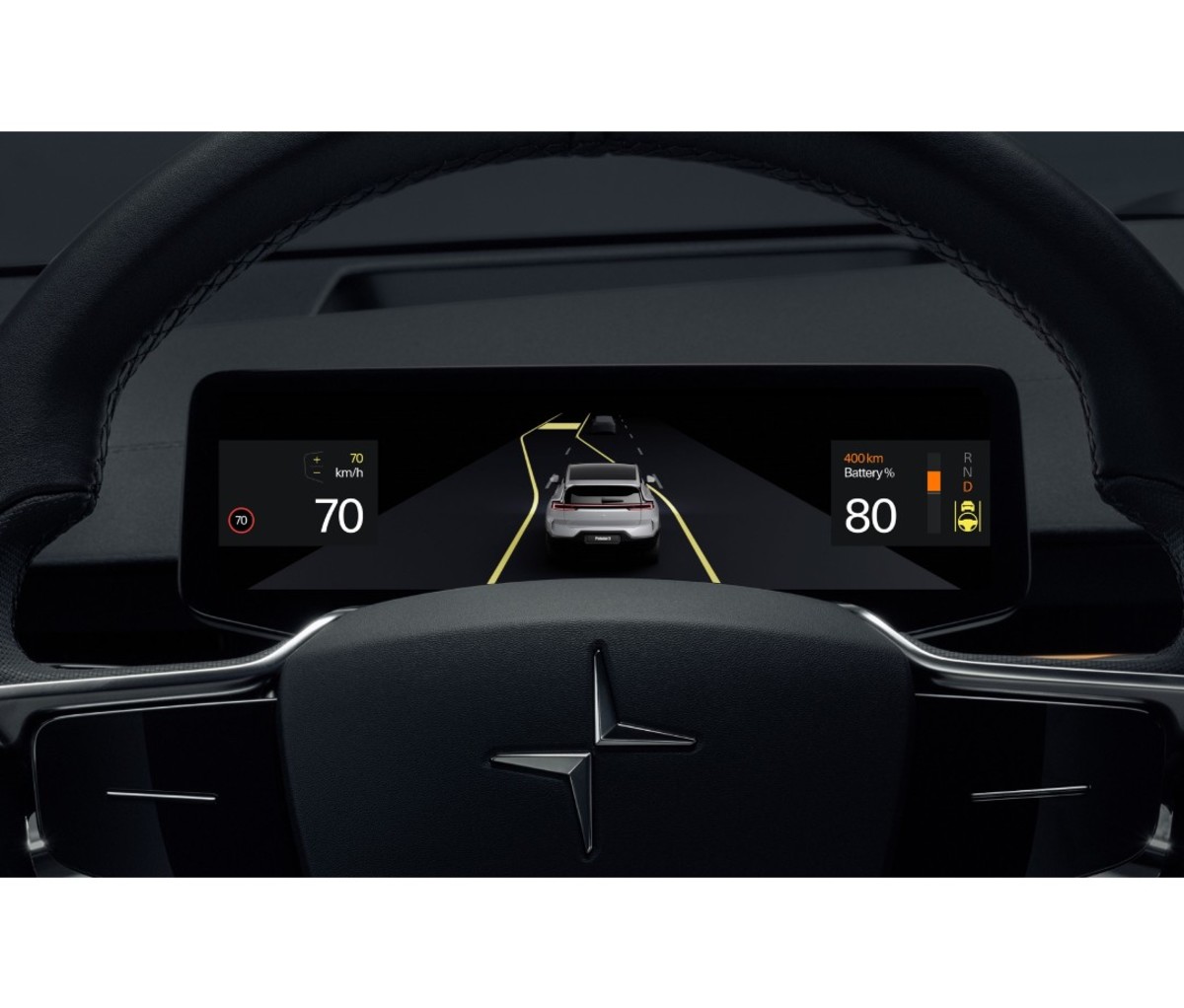
Android Can Now Unlock Your Car and Android OS Plays Nice With More Devices
Google is pushing its Androidness into all corners of life. For instance, Android Auto, which already exists as a way to transform your car’s dashboard into an extension of the OS on your phone, now gets a needed makeover. Google’s already been moving in this direction with brands like BMW and Volvo, as well as Polestar, where Google Built-in delivers especially deep mapping content (shown above) that’s going to be the backbone of autonomous driving. Google Built-in will come to less expensive cars, soon, like the 2023 Honda Accord.
Meanwhile, the revamp of Android Auto is a baby step toward Google Built-in, playing back texts you get on the fly, much like with Apple CarPlay, but also harnessing Google’s predictive tech strengths, which includes integrating with the navigation app Waze (for better live traffic conditions), reminding you about appointments in your Google calendar, as well as prompting you about missed calls or texts. Plus, there’s a quick scan adjustment for playback of podcasts (aka, hopping tracks or skipping ads) with a lot of this working via voice, rather than tapping and swiping. WhatsApp calling was also added; a feature already feasible with Apple’s CarPlay.
Another cool aspect of Android Auto that’s coming to more cars is the ability to use your phone as a smart key to unlock your car, and even share the digital key with a friend or family member.
Beyond cars, Android is also pushing what it calls Fast Pair, which is similar to Apple’s AirPods and an iOS phone or an Apple laptop ID’ing each other without needing a password or entering the Bluetooth settings on the device.
But Android, unlike Apple, wants to make playback more interoperable across headphone/earbud brands, so they’ve expanded Fast Pair to sync across 300 headphones from brands like Beats, JBL, OnePlus, and Sony. They’re also working with Spotify on interconnectedness from Android’s media player to Spotify Connect devices throughout your home, basically meaning you’ll be able to use your Android phone to send Spotify music to something like a Bose smart speaker, a Samsung TV, etc., without having to individually pair each device from your phone’s settings menu or the device’s.
This is all part of a more holistic, brand-agnostic approach coming to video and audio as well as smart devices. To that end, as with Samsung (mentioned above), Android announced integration with the Matter standard, meaning you should now be able to use an Android OS device to connect with more smart devices across brands, whether that’s a smart plug from Tuya or a Phillips Hue lightbulb.
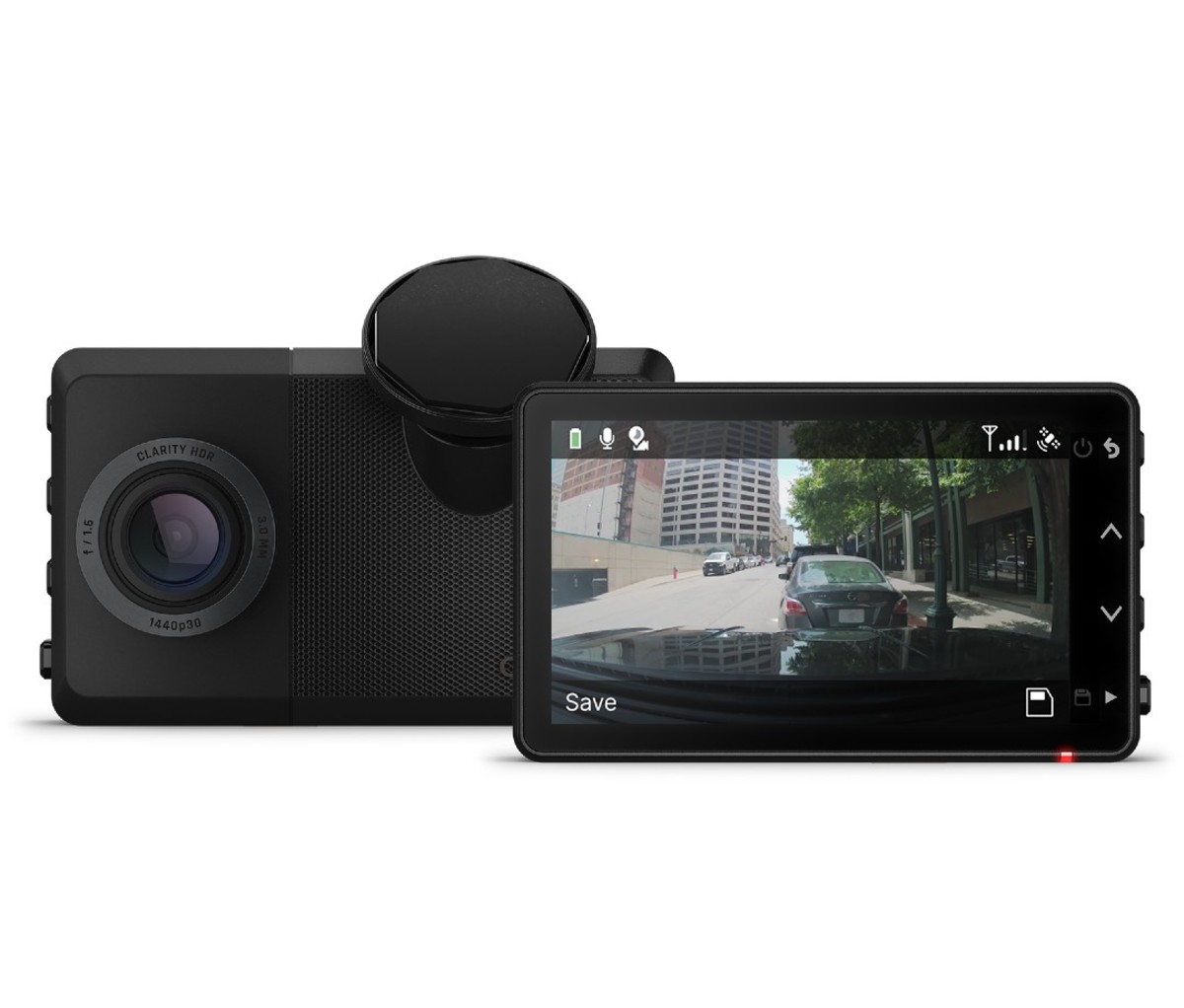
Garmin’s Always-on Dashcam
Dashboard cameras are superfluous if you already own a Tesla, but maybe you don’t love Elon as much as you used to? Also: Dash cams can be moved from vehicle to vehicle, or to a rental car, which makes them more portable and useful for security when you may want to monitor your whip on vacation, in parking garages, and/or while street parking, but don’t always need techno vigilance.
Garmin’s new Dash Cam Live takes the whole notion of protection a bit further with 24/7 video access, much like a camera doorbell. In this case, it’s with an LTE subscription ($9.99/month) via cloud storage (previously this was only offered over WiFi). Thanks to GPS tracking and auto-recording in case of a break-in or a dinged bumper, you always have a time-stamped recording with location on any video to capture an event. Video gets recorded in 1440-pixel, 140-degree HDR with night vision capability.
[$400; garmin.com]
Get it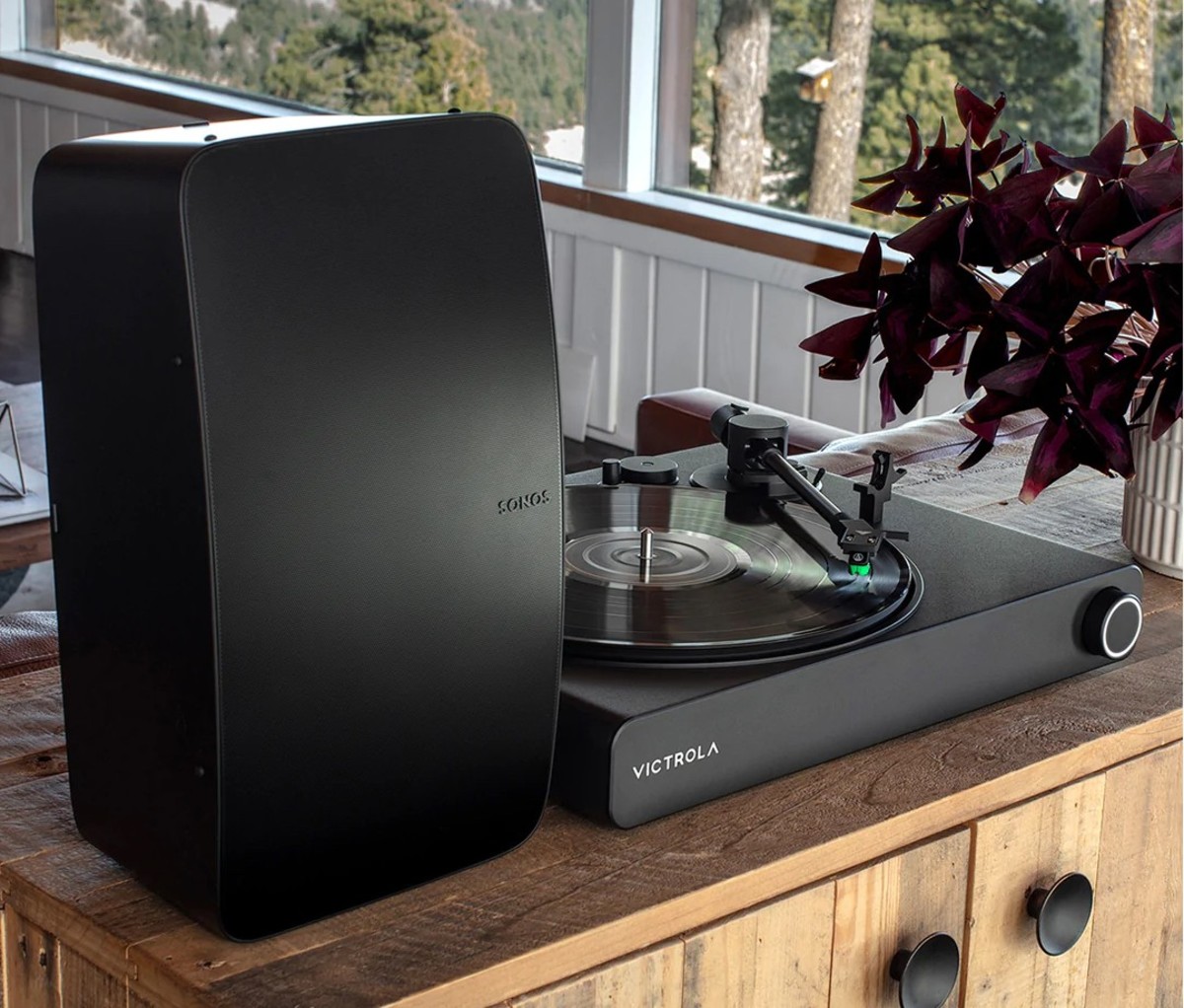
Victrola Stream Onyx Works With Sonos Speakers
There’s a reason to love vinyl’s immersive analogue richness. But Bluetooth adapters that can send that sound upstream to speakers usually leads to miserably diluted, muddy replication—unless you wanted to drop a pretty penny on high fidelity. Luckily, upstart vinyl-nerd brands like Victrola are stepping in.
The affordable Onyx turntable just dropped at CES and pairs with the Victrola Stream app, which can then wirelessly connect your prized Clash or Killers collection to your Sonos system. We dig that the Onyx has an old-school manual volume knob right on the turntable, but otherwise gives off a very Euro, tech-y aesthetic. The standard Audio Technica AT-VM95E cartridge should deliver reasonable clarity, and RCA jacks also let you wire the Onyx directly to any amp you already own.
$599; victrola.com
Get itfrom Men's Journal https://ift.tt/AYTR8JF




No comments:
Post a Comment